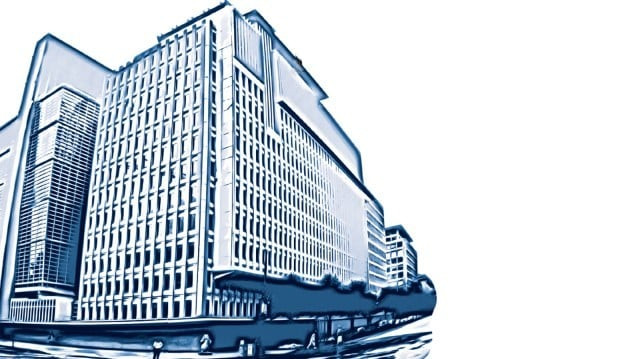World Bank links $500m loan with anti-trust law

It might be the first condition of an international donor agency, which will serve the interest of consumers who have so far been left at the mercy of the sugar cartel and cement barons.
The WB also recommended an amendment in the Competition Commission Bill 2009 proposing withdrawal of right of appeal against the Competition Commission of Pakistan (CCP) decisions in high courts, the official told The Express Tribune on condition of anonymity. “Justice delayed is justice denied and taking CCP matters in high courts amounts to delaying the investigation process” is the plea taken by the WB, said the official.
The original CCP ordinance, which was promulgated in October 2007, states that the parties can move the Supreme Court against the CCP’s decisions. However, for reasons well known to the government, the Finance Ministry through a corrigendum replaced the word supreme with high.
The change of one word gave a God-sent opportunity to sugar barons who when confronted last year with hard evidence of cartelisation. They took the matter to provincial high courts and got stay orders against the CCP. High courts for the time being stopped the watchdog from taking any action against the sugar barons. “The CCP on its own cannot vacate the stay order, as there is no anti-trust law in existence at the moment,” said the official.
The official said the WB has made these recommendations part of the Poverty Reduction Strategy Paper III. The PRSP III would pave the way for approval of a $500 million loan under the Poverty Reduction Support Credit. It may be pointed out that there is no anti-trust law in the country for the past 26 days.
The CCP ordinance lapsed on March 26 and it was not repromulgated. The government promulgated seven other ordinances on Wednesday but the law, which protects consumers’ right, was not one of them. Chairman CCP Khalid Mirza said that it was a matter of grave concern for the CCP, for right thinking business people and for the consumers that the CCP ordinance has not been re-promulgated. The CCP Bill 2009 is laying with the Senate Standing Committee on Finance and Revenue, which is headed and dominated by industrialists.
The committee is meeting today under Senator Ahmad Ali of the MQM. It would consider whether to approve the bill in its existing form and send it to the Senate before May 10 or propose amendments in it.
There are fears that the influential cartels are working to make the watchdog body toothless. According to some reports the Senate Standing Committee on Finance may propose curtailing CCP’s powers of imposing fines and penalties. An official of the CCP said that due to absence of an antitrust law the hearings in the cases of sugar and fertilizers have been stopped. The recovery process has also been halted because of the absence of the umbrella law.
The CCP has imposed more than Rs7 billion fines on various cartels and some of them have managed to get stay orders from the high courts. It seems that during the last 26 days there is a free run for cartels. The price of cement has increased by Rs10 per 50kg bag but no one has dared to take notice. The Pakistan Sugar Mills Association has also advertised and threatened that it would stop payment of billions of rupees due to sugarcane farmers if the government did not halt the process of sugar import.
Meanwhile, sources said that the release of the fifth tranche of $1.2 billion loan to Pakistan has been delayed as the International Monetary Fund (IMF) has raised objections to the Letter of Intent (LOI). The Fund has asked Islamabad to review the LOI in light of the outcome of the energy summit, sources told The Express Tribune.
And the IMF Executive Board meeting, scheduled to be held on May 3, has been postponed. Senior government officials told The Express Tribune that the IMF was mounting pressure on Pakistan to increase electricity tariff by six per cent from April. If the power tariff is not increased then it has to inform the IMF about alternate measures to be taken to meet the expected shortfall in revenue. The LOI was sent to the IMF chief in Pakistan three days back but was returned with objections.



















COMMENTS
Comments are moderated and generally will be posted if they are on-topic and not abusive.
For more information, please see our Comments FAQ